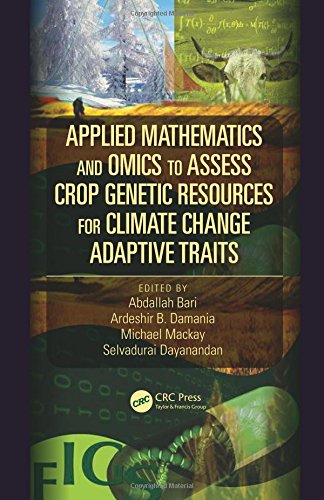

Most ebook files are in PDF format, so you can easily read them using various software such as Foxit Reader or directly on the Google Chrome browser.
Some ebook files are released by publishers in other formats such as .awz, .mobi, .epub, .fb2, etc. You may need to install specific software to read these formats on mobile/PC, such as Calibre.
Please read the tutorial at this link: https://ebookbell.com/faq
We offer FREE conversion to the popular formats you request; however, this may take some time. Therefore, right after payment, please email us, and we will try to provide the service as quickly as possible.
For some exceptional file formats or broken links (if any), please refrain from opening any disputes. Instead, email us first, and we will try to assist within a maximum of 6 hours.
EbookBell Team

5.0
98 reviewsApplied Mathematics and Omics to Assess Crop Genetic Resources for Climate Change Adaptive Traits focuses on practical means and approaches to further the use of genetic resources for mitigating the effects of climate change and improving crop production. Genetic diversity in crop plants is being further explored to increase yield, disease resistance, and nutritional value by employing recent advances in mathematics and omics technologies to promote the adaptation of crops to changing climatic conditions.
This book presents a broad view of biodiversity and genetic resources in agriculture and provides answers to some current problems. It also highlights ways to provide much-needed information to practitioners and innovators engaged in addressing the effects of global climate change on agriculture. The book is divided into sections that cover:
We are in the midst of significant changes in global climates, and its effects are already being felt throughout the world. The increasing frequency of droughts and heat waves has had negative impacts on agricultural production, especially in the drylands of the world. This book shares the collective knowledge of leading scientists and practitioners, giving readers a broader appreciation and heightened awareness of the stakes involved in improving and sustaining agricultural production systems in the face of climate change.